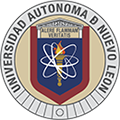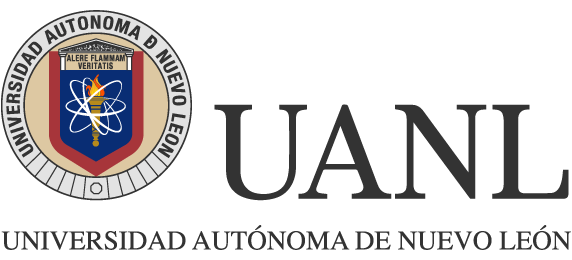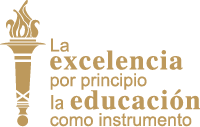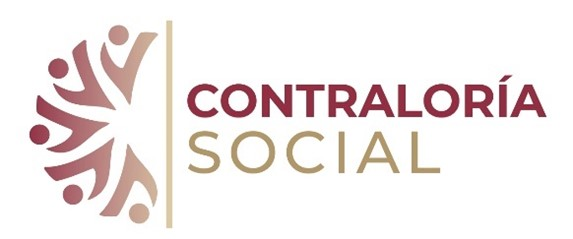Share:
Bachelor of Industrial Chemistry
School of Chemistry
Admission profile
The applicant who wishes to enter the Bachelor’s Degree in Industrial Chemistry must comply with the following characteristics:
- Assessable characteristics.
- Possess basic knowledge of chemistry, physics and mathematics.
- Verbal and numerical reasoning.
- Knowledge of general culture.
2. Desirable characteristics
- To cultivate effective study habits conducive to independent learning.
- To foster critical thinking abilities.
- To develop strong analytical reasoning skills.
- To excel in collaborative teamwork.
- To comprehend written material in English proficiently.
- To uphold values of honesty and demonstrate respect for the environment.
Admission requirements
Academic
Have satisfactorily completed high school or equivalent.
Legal
Those established by the University's regulations and procedures in force; or others, if applicable.
Testing
The student must take the undergraduate admission test established by UANL.
Program-specific
-Once selected, the student must take the introductory course.
-Submit a diagnostic test on foreign language proficiency.
Graduation profile
Our purpose is to educate Industrial Chemistry graduates with a holistic perspective. These graduates will be socially responsible, trained within a culture of excellence and self-improvement. They will possess the ability to work in and lead multidisciplinary teams, offering innovation and competence in the planning, management, operation, and optimization of chemical processes. Additionally, they will excel in addressing challenges within the chemical industry while remaining steadfast in their commitment to promoting the general welfare through the practice of university values, which they will integrate into their daily work.
The professional endeavors of a Bachelor of Industrial Chemistry are dedicated to addressing industry-specific issues and scientific challenges in the field of Chemistry with a conscientious, responsible, and ethical approach. This commitment extends to meeting society’s demands by producing high-quality products through innovative and sustainable processes. They maintain a vision focused on productivity, innovation, reducing pollutant emissions and energy consumption, and conserving non-renewable resources.
Their knowledge, skills, attitudes, and proficiency in a second language facilitate their seamless integration into productive, academic, research, and entrepreneurial sectors, both locally and globally. They are well-prepared to make meaningful contributions across these diverse domains while championing the advancement of society as a whole.
General skills
Instrumental competencies
- Proficiently apply autonomous learning strategies across various levels and fields of knowledge, enabling timely and relevant decision-making in personal, academic, and professional contexts.
- Utilize a range of communication modes, including logical, formal, mathematical, iconic, verbal, and non-verbal languages, tailored to their stage of life. This versatility enables them to comprehend, interpret, and express ideas, emotions, theories, and diverse schools of thought from an inclusive perspective.
- Manage Information, Communication, Knowledge, and Digital Learning Technologies (TICCAD) as powerful tools for accessing information, transforming it into knowledge, and facilitating learning and collaborative work. Employ cutting-edge techniques to actively engage and contribute constructively to society.
- Demonstrate mastery of their native language both in oral and written forms, ensuring correctness, relevance, timeliness, and ethical communication. Adapt their message effectively to the situation or context, facilitating the transmission of ideas and scientific findings.
- Apply logical, critical, creative, and proactive thinking to analyze natural and social phenomena. These cognitive skills enable them to make pertinent decisions within their sphere of influence while upholding social responsibility.
- Utilize a second language, preferably English, with clarity and precision in everyday, academic, professional, and scientific contexts. Effective communication in a second language enhances their ability to engage globally.
- Develop academic and professional proposals that embrace inter, multi, and transdisciplinary approaches, aligning with international best practices. This fosters collaborative work and consolidation of efforts.
- Employ both traditional and cutting-edge research methods and techniques to advance their academic work, excel in their profession, and contribute to knowledge generation in their respective fields.
Personal and social integration competencies
- Maintain a dedicated and respectful attitude towards the diversity of social and cultural practices, reaffirming the principle of integration. This commitment extends across local, national, and international contexts, with the aim of fostering environments conducive to peaceful coexistence.
- Engage actively in addressing the challenges of contemporary society, both at the local and global levels. Approach these challenges with a critical mindset and a humanistic, academic, and professional commitment to contribute to the consolidation of general welfare and sustainable development.
- Practice the values promoted by the UANL, including truth, equity, honesty, freedom, solidarity, respect for life and others, peace, respect for nature, integrity, ethical behavior, and justice. Uphold these values within their personal and professional environments, actively participating in the building of a sustainable society.
Integrative competencies
- Develop innovative proposals by comprehensively understanding the complexities of our world. These proposals aim to address the challenges posed by the interdependent global environment effectively.
- Assume leadership roles with a commitment to meeting the needs of society and the profession. Use this leadership to drive meaningful social change and contribute to the betterment of communities and beyond.
- Skillfully resolve both personal and social conflicts, drawing upon specific techniques relevant to their academic field and profession. These abilities enable informed decision-making that leads to constructive outcomes.
- Cultivate adaptability to thrive in the ever-evolving professional and social landscapes of our time. This adaptability is essential for creating improved living conditions and positively impacting society amid uncertainty.
Specific skills
1. Apply knowledge from diverse areas of chemistry to create sustainable chemical processes. Ensure compliance with current safety and hygiene standards while producing products and offering analytical or consulting services that benefit society.
2. Evaluate issues within the chemical industry by analyzing physical, chemical, or microbiological aspects across different stages of processes. This analysis leads to solutions that maintain and enhance product and service quality.
3.Propose operational parameters for chemical processes initially developed at the laboratory scale, facilitating their successful transition to industrial levels.
4.Utilize specialized equipment and employ appropriate analytical techniques to evaluate the composition of a wide range of samples. This process aids in controlling chemical processes and ensures the quality of raw materials and final products.
5.Employ statistical tools to assess the quality of raw materials, finished products, and process conditions. This evaluation is conducted in accordance with required norms and applicable standards, fostering continuous improvement in industrial chemical processes.
6. Srategically plan laboratory operations, aligning them with the necessary regulations, safety protocols, and hygiene standards. Additionally, ensure compliance with the requirements specified by accrediting entities. This approach ensures responsible development of chemical products and processes.
7. Engage in scientific research and technological development projects by employing the scientific method and leveraging chemistry knowledge. These endeavors aim to introduce innovative solutions to challenges within the realm of chemistry.
Labor market
| Area | Jobs |
| 1. Chemical production and processes in food, agrochemical, fertilizer and pesticide, pharmaceutical, petrochemical, cosmetics, materials, electronics, cleaning, hygiene and health, environmental and other industrial companies. | 1. Quality control and process optimization at the laboratory level.
2. Design, plan and manage processes 3. Implement quality systems 4. Apply standards required for work in the laboratory or chemical industry. 5. Apply established safety and industrial hygiene procedures.
|
| 2. Research and development in food, agrochemical, fertilizer and pesticide, pharmaceutical, petrochemical, cosmetics, materials, electronics, cleaning, hygiene and health, environmental and other industrial companies. | 1. Develop new products
2. Optimize processes at the laboratory scale 3. Analyze process and finished product quality 4. Handle specialized scientific equipment 5. Characterize raw materials 6. Analyze statistical data and report writing 7. Solve problems in production lines |
| 3. Academic institutions at universities, research centers and institutes and specialized laboratories. | 1. Directing undergraduate theses
2. Participate in the publication of scientific articles 3. Manage resources for research 4. Manage laboratory and research groups 5. Perform administrative activities |
| 4. In industrial, manufacturing and environmental service companies, among others. | 1. Perform specialized consulting
2. Develop technical training 3. Evaluate compliance with regulations 4. Perform chemical analysis of samples |
| 5. Commercial and technical advisor in the chemical industry for consumables and equipment supplies. | 1. Sale of scientific equipment and chemical reagents
2. Conduct customer training 3. Installation and service to customers 4. Calibration and maintenance of equipment |
Graduation requirements
Academic
-To have approved 225 total credits of the study plan.
-To have completed the mandatory Learning Service.
Legal
Those established by the University's regulations and procedures in force; or others, if applicable.
Program-specific
Certificate of Participation in Comprehensive Training Activities.
Certificate of Having Developed or Strengthened Competence in a Foreign Language.
Take the Bachelor's Degree Exit Exam.
Attend an Exit Interview in which feedback is provided about your experiences during your studies.
Accreditations
National
Name
Accreditors that belong to the Council for the Accreditation of Higher Education (COPAES)
Accreditor
Consejo Nacional para la Evaluación de Programas de Ciencias Químicas, A.C
Accreditor's acronym
CONAECQ
http://www.conaecq.org/Validity of accreditation
June 2025
International
Name
Royal Society of Chemistry
Accreditor
Royal Society of Chemistry, United Kingdom
Accreditor's acronym
RSC
http://www.rsc.orgValidity of accreditation
In process
Location
Fecha de aprobación del H. Consejo Universitario
9 de junio de 2022.Posted by: Dirección del Sistema de Estudios de Licenciatura




